Scotland's Uefa coefficient - all you need to know after Celtic bow out
- Published
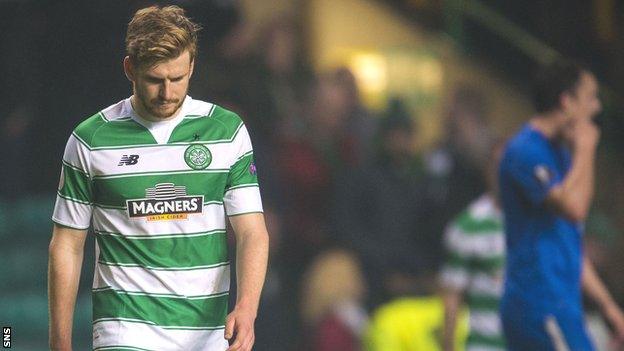
Stuart Armstrong trudges off the pitch at Celtic Park after a 2-1 defeat in the Europa League group stage by Molde
One cannot help but wonder when the allure of "reaching Europe" will lose its potency for Scottish clubs.
Every year, whether through league placings or success in the Scottish Cup, qualifying for Europe has become a measure of a successful domestic season. It excites fans.
Yet, as witnessed again as Scotland's four representatives surrendered their places in Uefa's two club competitions by mid-December, excitement is all too soon replaced by dismay, frustration and the pang of diminished worth that accompanies elimination.
Celtic's draw against Fenerbahce in Istanbul on Thursday was welcome but surely no-one at that club, or any Scottish football observer, will pretend that it masks a disappointing European campaign.
Ronny Deila's side, Scotland's current best, finished bottom of their Europa League group, the first Celtic team to fail to win a group match in continental competition.
When combined with St Johnstone, Inverness Caledonian Thistle and Aberdeen's failure to reach the group stage of the Europa League, it is hard to escape a sense of dejection about Scottish teams' participation in European club football.
In truth, when Scottish teams 'qualify' for Europe, they qualify for the right to TRY to qualify for the main event. It's like 'winning the chance to enter' a prize draw.
Celtic - the league winners - entered Champions League qualifying at the second round and got past Icelandic part-timers Stjarnan and Azerbaijan's Qarabag before a narrow aggregate defeat by Swedish side Malmo in the play-off round.
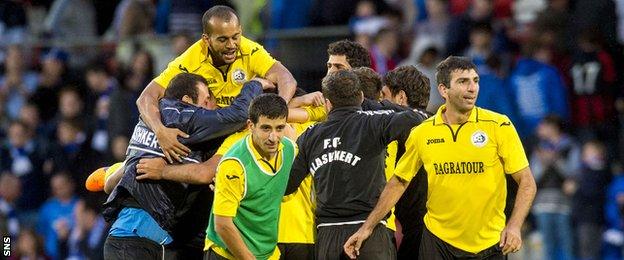
Alashkert beat St Johnstone 1-0 in Armenia and won the Europa League qualifying tie on away goals
St Johnstone, however impressive their feats domestically, were knocked out in the first qualifying round of the Europa League, with one win and one defeat against Alashkert of Armenia.
Scottish Cup winners Inverness entered Uefa's secondary club competition at the second qualifying round but lost one and drew one against Romania's Astra Giurgiu.
Aberdeen got past Shkendija of Macedonia and Croatian side HNK Rijeka in the Europa League first and second qualifying rounds before going out 3-2 on aggregate to Kazakhstan's Kairat Almaty.
From four teams to one, and all this before August was out.
Lower and lower
Scotland will drop another few places in Uefa's country ranking but it is a measure of how far it has sunk already that it will not yet lead to even fewer teams competing, or at an even earlier stage, of European qualifying in season 2017-18.
Scotland's declining Uefa ranking |
|---|
2005 - Scotland 10th |
2011 - Scotland 15th |
2016 - Scotland 25th |
Ten years ago, Scotland was 10th in the Uefa country rankings, this based on the five previous seasons' coefficient.
By 2011 it had fallen to 15th.
Scotland's 2016 ranking will be 25th, perhaps apt given Scotland's national team failed to qualify for the 24-team Euro 2016 finals.
If the rankings were based on this season alone and not over five years, Scotland would be 28th. All is not well.
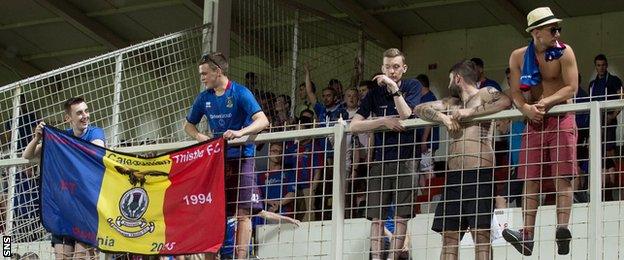
Caley Thistle fans made the long trip to Romania where they saw their team draw 0-0 with Astra Giurgiu
Participation in this season's tournaments was based on the 2014 ranking of 23rd.
When teams compete in Europe they are awarded coefficient points - two for a win, one for a draw in the group stages, and half that in qualifying.
These are then added up to form a total for the season.
Scotland's representatives gathered 12 coefficient points from 22 matches this season. When divided by four, the number of clubs, it gives a coefficient for 2016 of 3.000.
The 2015 figure that will determine participation in the 2016-17 competitions is the same as 2014's - 23rd - despite the poor coefficient for 2009-10 (2.666) dropping off to be replaced by a stronger coefficient for season 2014-15 (4.000).
Mercifully, there is no immediate fall-out from the current disappointing campaign which informs qualification in 2017-18.
Scotland will still have four clubs competing and the reigning league champions will still enter Champions League qualifying at the second round.
The teams finishing second and third in the league will continue to enter at the first Europa League qualifying stage.
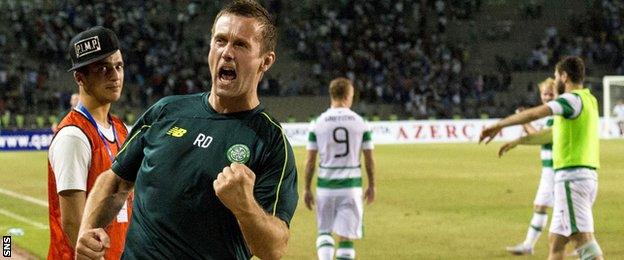
Ronny Deila was happy at full-time in Azerbaijan where Celtic completed an aggregate win over Qarabag
However, Scotland dare not slip further than 25th in the Uefa country rankings since to do so would mean that in future years, if Uefa keeps the access list the same as for the 2015-18 cycle, the Scottish Cup winners would enter Europa League qualifying at the first round rather than the second.
Luckily for Scotland's teams, they have some breathing space between them and the chasing pack. The teams in 26-28th place - Azerbaijan, Serbia and Kazakhstan - are about a poor season's coefficient-worth of points behind, yet their five-year totals show a rise year on year, unlike Scotland's.
Celtic - the target of unfair blame?
For all the criticism of Celtic in Europe this season, Scotland's ranking would be much worse without them.
St Johnstone's early continental exertions earned just one of those 12 coefficient points mentioned above while Caley Thistle's draw against Astra Giurgiu gathered a half point.
The stirring efforts made by Derek McInnes's Dons in three rounds of Europa League qualifying contributed a further three.
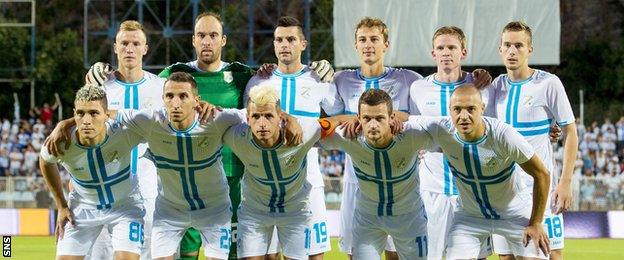
Aberdeen enjoyed a 3-0 away win over Croatian side Rijeka in the Europa League qualifying rounds
The remaining 7.5 coefficient points were earned by Celtic: 4.5 in Champions League qualifying, the rest from the draws against Ajax and Fenerbahce (twice) when they were parachuted into the Europa League group stage.
In addition, Scotland's fate in club competitions is hampered by the seeding system that tends to favour the larger and more powerful football nations.
Seedings are determined by the clubs' coefficient, which is determined by the sum of all points won in the previous five years, plus 20% of that country's coefficient over the same period.
Celtic have fallen from 50th to 75th in Europe, with only their Europa League group stage draws earning them their three points.
Southampton, however, a club with a lesser European pedigree than Celtic, are ranked 74th. The English side earned 1.5 club coefficient points compared to Celtic's three, but they benefit from English football's high standing and have 2.125 points added to their club coefficient to take it to 3.625 while Celtic had 0.600 (20% of Scotland's coefficient of 3.000) added for a modest total of 3.600.
For comparison, Aberdeen are ranked 125th for season 2015-16, Caley Thistle 162nd and St Johnstone 167th in the club coefficient standings.
Midsummer start, midwinter blues
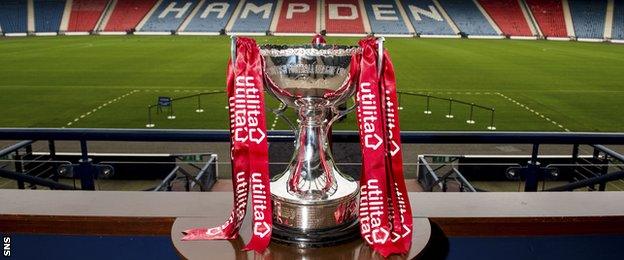
Changes to the Scottish League Cup will inject a measure of summer football
A common complaint made by Scottish teams is that they have to play crunch European matches in July before their domestic season has even begun.
The new format for the Scottish League Cup will bring an element of summer football with ties in July - except for teams competing in Europe.
In the midwinter gloom, with post-Christmas European football to be savoured by others, there is no obvious prospect of Scotland's coefficient matching that of, say, Sweden, Norway or Denmark, a few places ahead, any time soon.
- Published11 December 2015
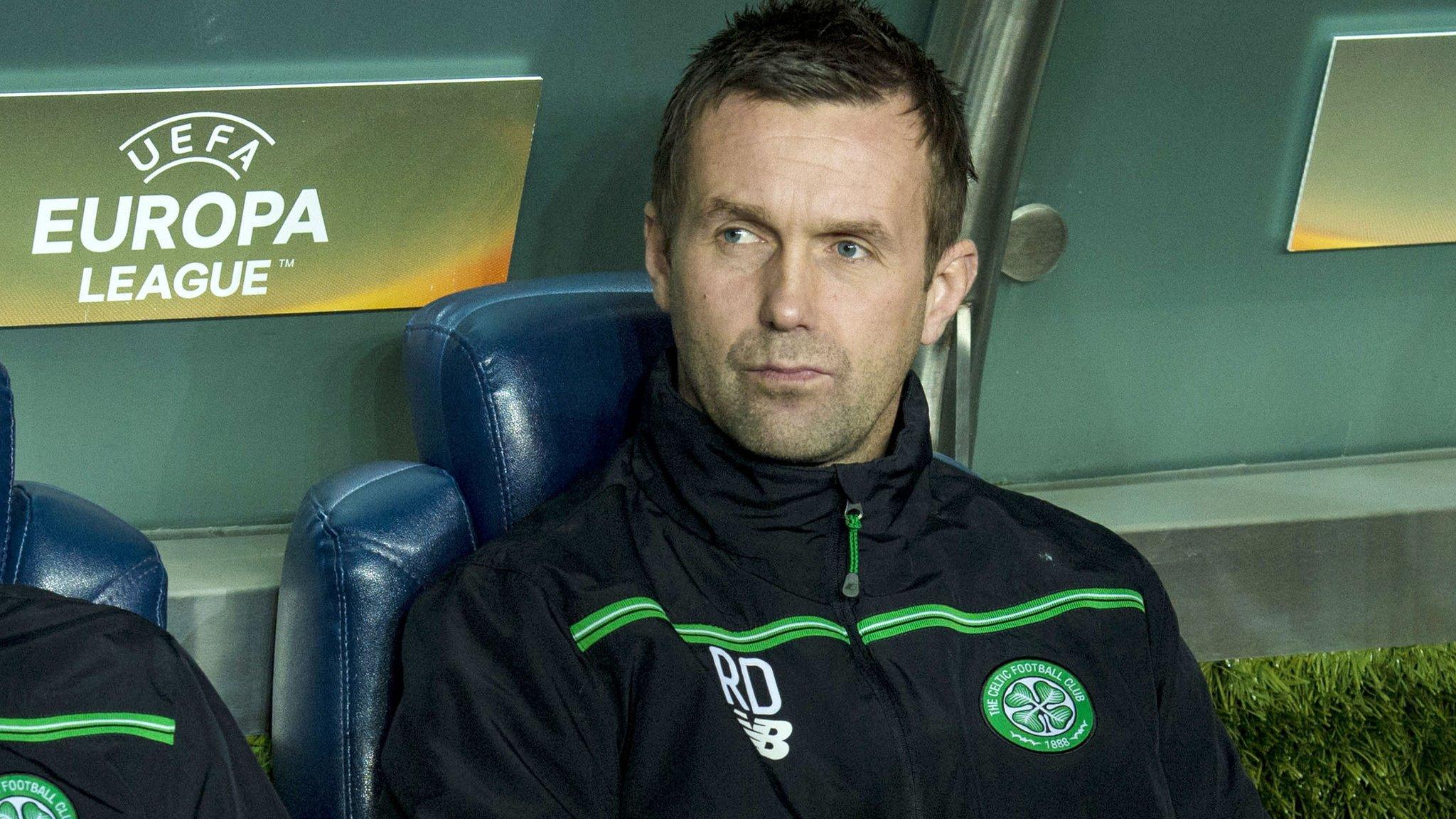
- Published11 December 2015
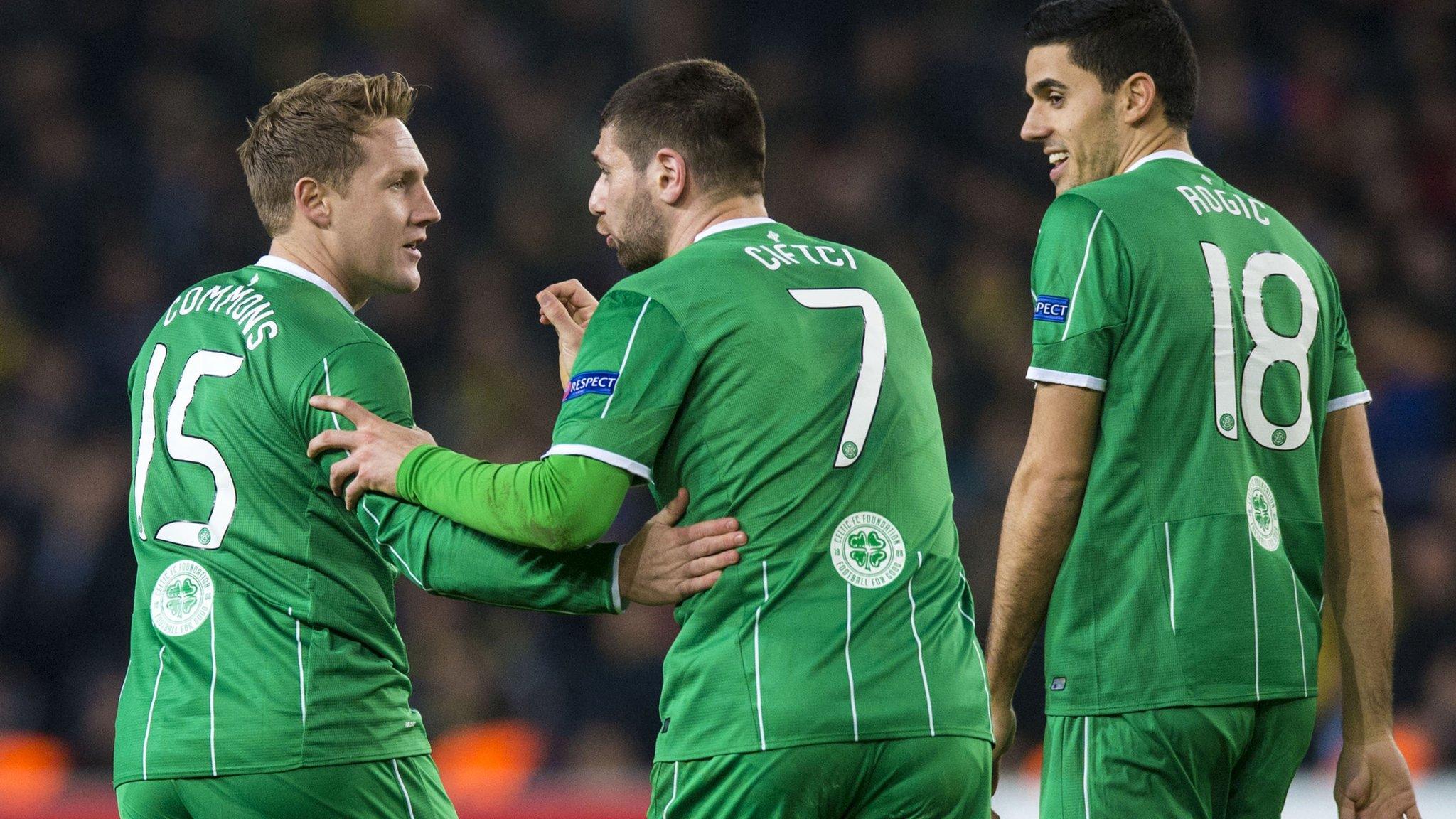
- Published11 December 2015
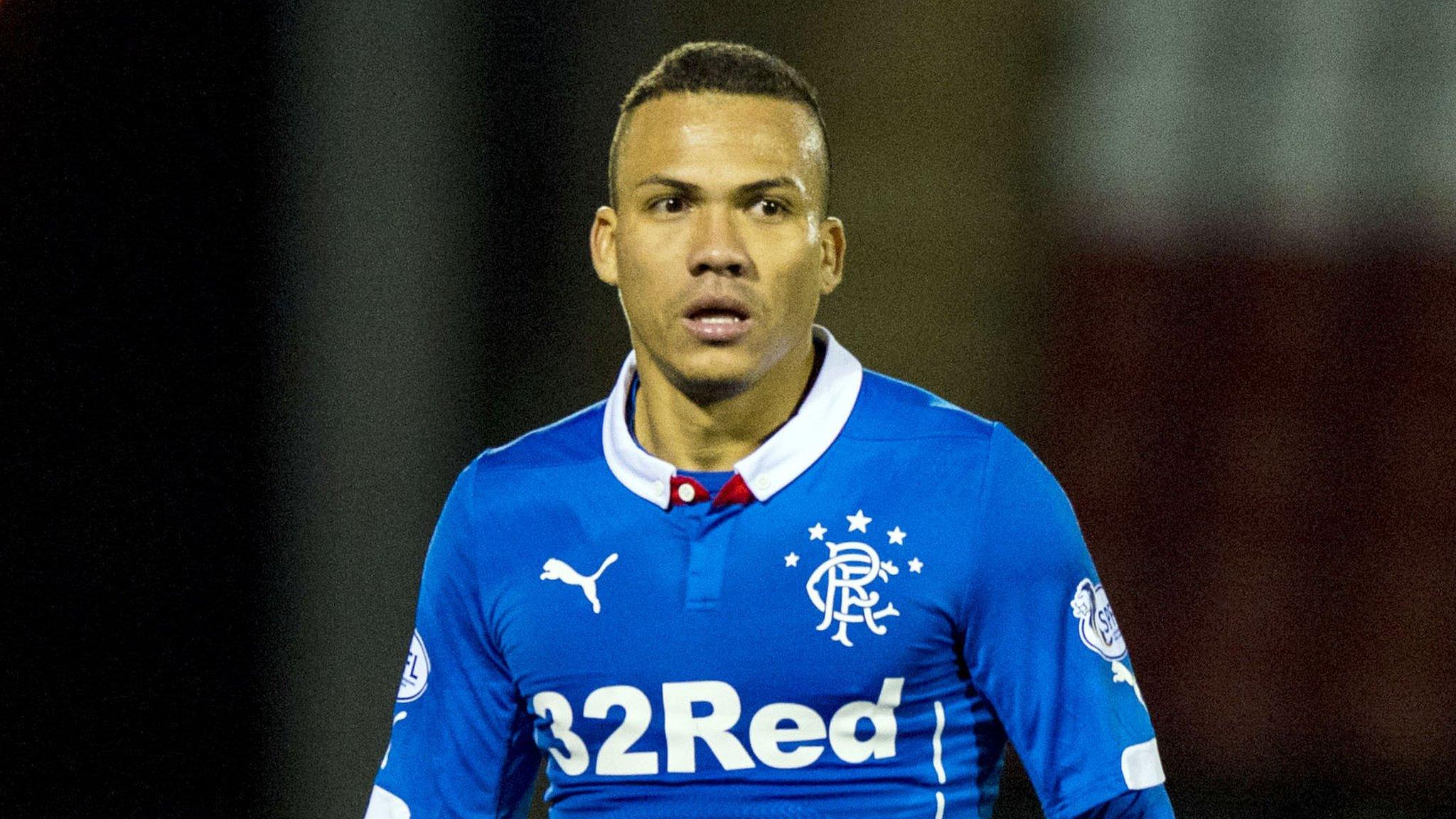
- Published7 June 2019

- Published20 June 2016
